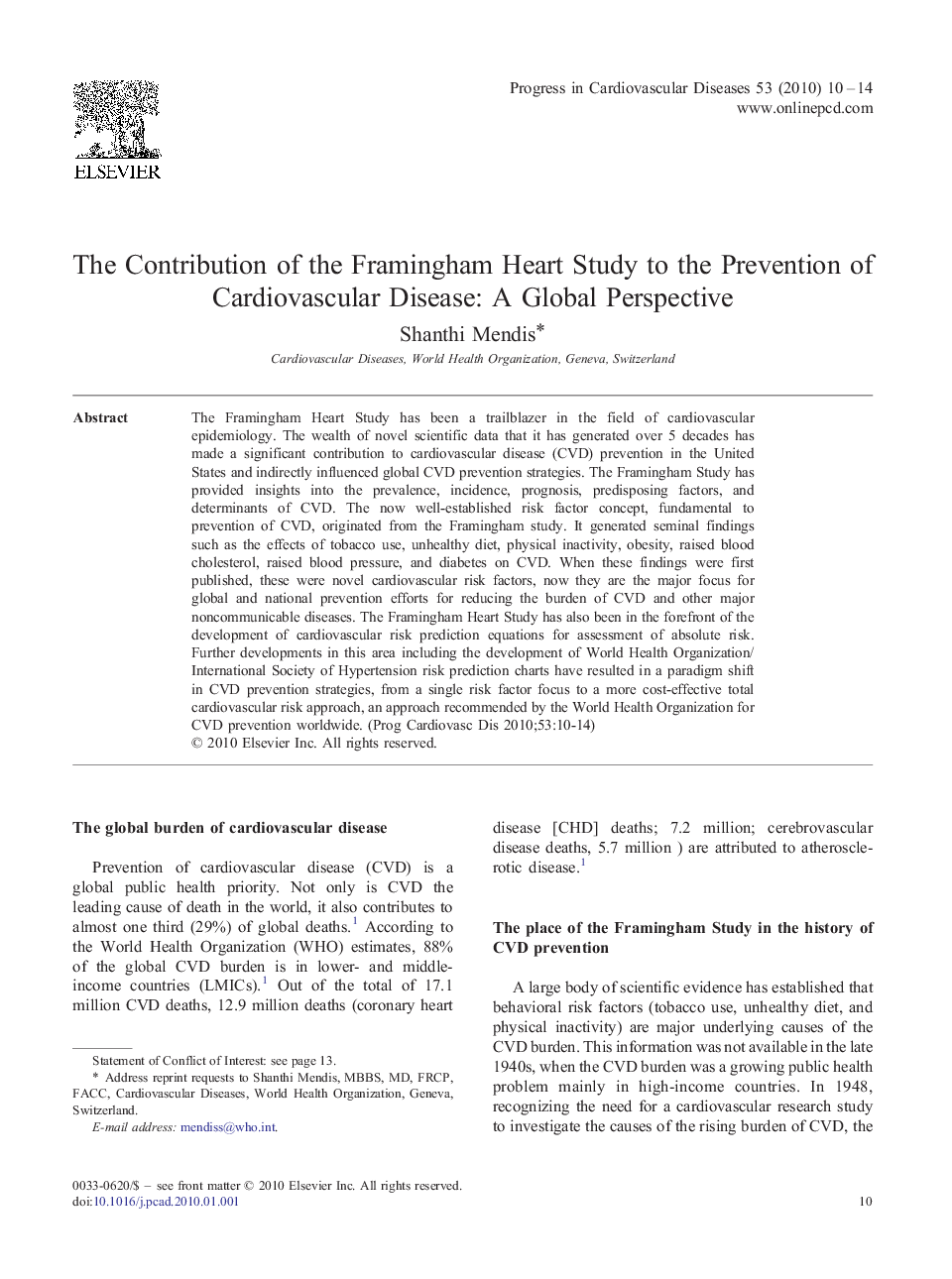| Article ID | Journal | Published Year | Pages | File Type |
|---|---|---|---|---|
| 3006544 | Progress in Cardiovascular Diseases | 2010 | 5 Pages |
The Framingham Heart Study has been a trailblazer in the field of cardiovascular epidemiology. The wealth of novel scientific data that it has generated over 5 decades has made a significant contribution to cardiovascular disease (CVD) prevention in the United States and indirectly influenced global CVD prevention strategies. The Framingham Study has provided insights into the prevalence, incidence, prognosis, predisposing factors, and determinants of CVD. The now well-established risk factor concept, fundamental to prevention of CVD, originated from the Framingham study. It generated seminal findings such as the effects of tobacco use, unhealthy diet, physical inactivity, obesity, raised blood cholesterol, raised blood pressure, and diabetes on CVD. When these findings were first published, these were novel cardiovascular risk factors, now they are the major focus for global and national prevention efforts for reducing the burden of CVD and other major noncommunicable diseases. The Framingham Heart Study has also been in the forefront of the development of cardiovascular risk prediction equations for assessment of absolute risk. Further developments in this area including the development of World Health Organization/International Society of Hypertension risk prediction charts have resulted in a paradigm shift in CVD prevention strategies, from a single risk factor focus to a more cost-effective total cardiovascular risk approach, an approach recommended by the World Health Organization for CVD prevention worldwide.
